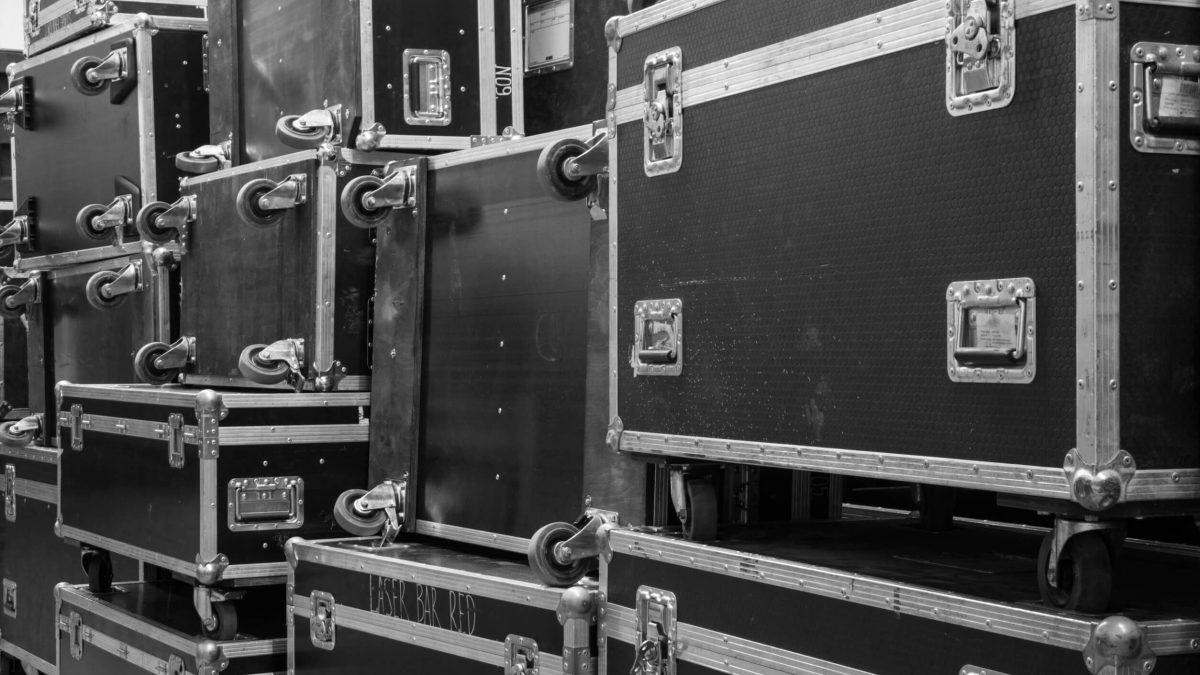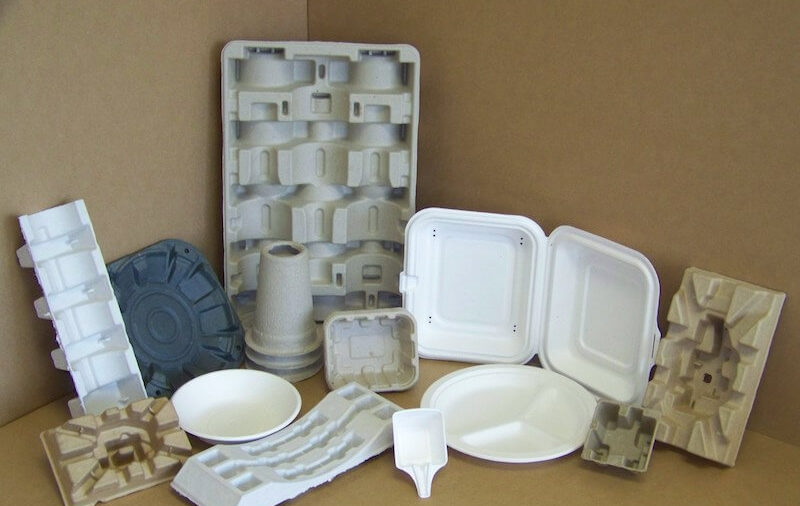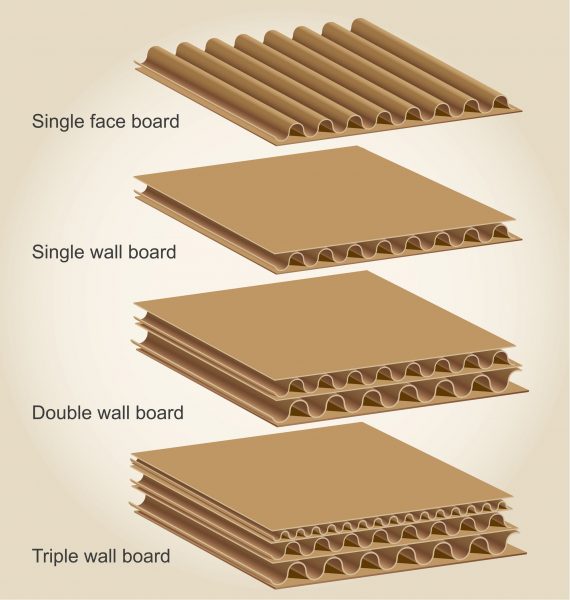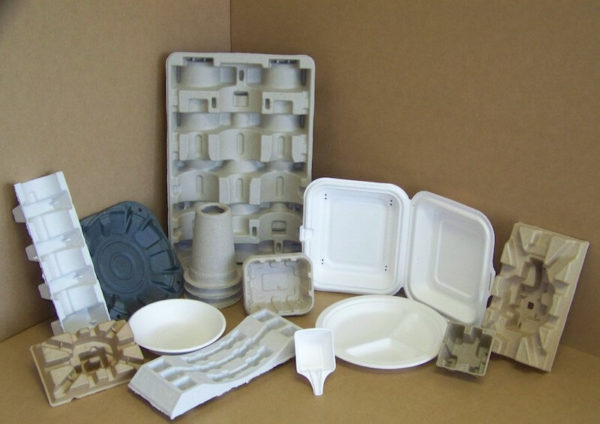Road Case Material: What Are the Types and Different Uses

Road cases are specially designed to protect your equipment during transport. They come in a variety of sizes and styles, each suited for different types of gear. Having the right road case material can make a big difference in protecting your equipment during transport. But with all the different options out there, it can be tough to know which one to choose. Our comprehensive guide will break down the different types of road cases, the most common road case materials, their uses and their pros and cons.
What are road cases?
Road cases are a type of specialized hard-shell case lightweight enough to transport easily yet strong enough to protect fragile items during shipping. They are typically made of titanium, aluminum, or wood and can be completely customized to meet the exact requirements of any given situation. Road cases are often used in the entertainment industry to transport audio/visual equipment, live entertainment props, instruments, and other delicate gear from place to place. Although they can be expensive to purchase initially, road cases are designed for heavy use and will last for many years—saving time and money in the long run due to fewer repairs or replacements.
History of road cases
The history of road cases is quite interesting and goes back centuries. In early England, traveling players needed something to protect their stage wagons and props, so they created wooden trunks lined with animal hides to provide a protective covering. These cases were used to transport theatrical and musical instruments, as well as personal items for the journey.
By the time other travel modes had become popular such as cars and trains, road cases had seen changes in materials like metal frames, corner plates, latches, and hinges from iron or steel. Over the years, designers have paid close attention to detail so that road cases can remain lightweight with an improved ruggedness suited for both ground travel or aircraft utilization. This speaks highly of their adaptability qualities that are still present today.
What are the different types of road cases?
Depending on the size, weight, and fragility of different items, there are a range of road cases to choose from that offer varying levels of protection. These include:
- ATA (Air Transport Association ) cases: These cases are made of a variety of materials, but the most common type is constructed from plywood with an aluminum frame and plastic corner pieces. ATA road cases are designed to withstand hard knocks and drops that can happen during transit, making them ideal for equipment such as musical instruments.
- Pelican cases: These are high-end, watertight cases that are designed with a custom foam interior to protect sensitive equipment. They also feature impact-resistant frames and snap-down latches for extra security.
- Flight cases: These are aluminum cases with ultra-strong riveted corners and an internal cushioning material to absorb shocks and vibrations during transit. They are ideal for heavier items such as video, audio and lighting equipment.
- Shipping cases: These cases provide the most protection, but they can be heavy and are more suited to large items that need to be transported over long distances. They feature reinforced corners made of wood or metal and a range of additional features including rollers, handles, and locks.
- Soft cases: These are lighter than traditional road cases and often feature adjustable dividers, protective padding, and exterior pockets for extra storage. They can be used to transport smaller items such as cameras or laptops.
- Ramp cases: These cases are a unique type of road case that features a wide ramp and heavy duty handles which make it easier to load heavy or awkward items into the case.
- Workstation cases: These cases are designed specifically for delicate equipment that requires a level of stability and protection such as photography or video equipment. They often feature built-in compartments, drawers, and adjustable shelves.
- Trunk cases: These cases are similar to ATA road cases but feature a deeper design that makes them more suitable for larger items such as stage backdrops, banners, and other large props.
- Rack mount cases: These cases are designed to hold electronic equipment such as sound systems, amplifiers, and other audio equipment. They feature protective foam interiors and shock-absorbing corner posts.
What are the most common road case materials?
The most popular materials used in road cases include aluminum, plywood and plastic.
- Aluminum is strong, lightweight, and corrosion-resistant making it a great choice for protecting delicate equipment.
- Plywood offers strength and durability.
- Plastic provides flexibility with features such as latches, handles and locks.
Other materials used for road cases include:
- Wood is a lightweight and affordable material that offers strength, durability, and protection.
- Foam is used to provide extra cushioning and shock absorption inside the case.
- Nylon is commonly used for soft cases due to its flexibility, water resistance, and lightweight properties.
- Metal is typically used in flight cases as it is strong, rigid and able to withstand a lot of wear and tear.
- Cardboard is a lightweight material that provides basic levels of protection. It is often used for short trips or one-time use cases.
- Steel is another strong material that is often used in rack mount cases for extra protection.
- Cordura is a durable, waterproof material that is used for soft cases and backpacks.
- Leather offers an attractive finish to road cases and provides good levels of durability and protection.
What are the benefits of using road cases?
The key benefits of using road cases include:
- Protection: Road cases help protect items from physical damage, shock, vibration and moisture.
- Durability: Road cases are designed to withstand a lot of wear and tear and often have a long lifespan.
- Versatility: Road cases can be customized to fit a variety of items and are available in a range of sizes, shapes and materials.
- Convenience: Road cases are easy to transport and often feature wheels, handles and other built-in features that make them easier to move.
- Security: Many road cases include locks, straps, buckles and other security features to help protect items from theft or loss.
What factors determine the type of material used for a road case?
When creating a road case, the type of material used depends on the intended purpose. The sturdiness, portability, and cost of construction are important factors when determining which type of material should be used. For long-term cases that must withstand physical stresses such as drops and sudden jolts, solid materials such as plywood or aluminum are an ideal choice due to their durability. On the other hand, if a lightweight and portable solution is desired, plastic may be preferred over more heavy metals or composite boards. A combination of all three materials could also be considered by those looking for added security with balance weight and affordability in mind. Ultimately, understanding what need the road case is being crafted for will drive the selection process for determining which type of material should finally be chosen.
How to choose a road case
Finding the right road case to fit your needs can sometimes be an overwhelming process.
- You should always make sure that the type of road case matches the type of equipment you will be storing in it.
- Size matters, so make sure that the interior dimension of your road case is slightly larger than the overall size (including attachments) of whatever it is that you are transporting.
- Consider how much wear and tear your case may go through during transport; this will help determine its strength.
- Pay attention to the graphics and design of your case; some cases come with great graphics, or customizable graphics for additional branding opportunities.
- Think about your budget; road cases come in various price points and can also be custom ordered if needed.
- Research the type of locks, handles and latches available for each case to determine what is best for your needs.
- Consider additional features such as wheels and straps that may make transporting easier.
Uses of road cases
Road cases provide tremendous storage and transportation solutions for any type of equipment. They are commonly used to store sound, electrical, and lighting systems, but can be just as helpful when it comes to transporting delicate items such as glassware for restaurants or sensitive medical supplies for hospitals. An integrative latching system also makes them particularly beneficial when transporting items over bumpy roads, meaning expensive equipment can be kept safe from undesirable knocking during transit. With highly durable construction and secure custom-piecing options available, road cases provide an ideal solution for those who need a reliable way to transport their belongings.
How Orcon Industries can help meet your road case needs
Orcon Industries is the ultimate source for durable and effective custom-designed road cases. With years of experience in designing quality, reliable cases that protect sensitive commercial equipment, Orcon Industries has some of the best products on the market.
Our experienced team designs and manufactures high-quality road cases with an emphasis on efficiency and security, making sure all our cases are built to last through any situation. Whether you are looking for a simple solution or a complex design, Orcon Industries offers customized options tailored to meet your particular needs. Contact us today to learn more about our cutting-edge materials and industry-leading specs for road cases – we guarantee you’ll find just what you’re looking for!






















